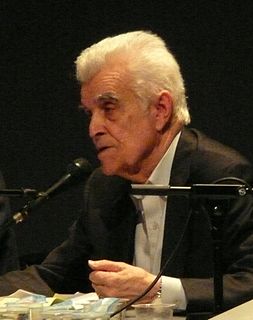A Quote by Os Guinness
I give lectures on globalization. I have lived on three continents. I have no quarrel with a global consciousness.
Quote Topics
Related Quotes
Consciousness-one level is understanding where we are in space. Consciousness two is where we understand our position in society: who's top dog, who's underdog and who's in the middle. And type-three consciousness is simulating the future. And type-three consciousness, only humans have this ability to see far into the future.
Globalization is a bottom-up phenomenon with all actions initiated by milions of individuals, the sum total of which is globalization. No one is in charge, and no one can anticipate what the sum of all the individual initiatives will be before the result manifest. A global economy can only be the result of spontaneous order.


































